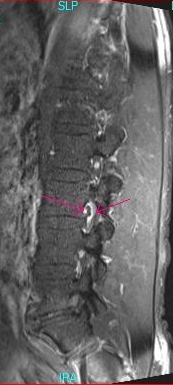Health Generalizations work for Populations, not Individuals
An article published in The Province on Tuesday entitled Health First: Brain tumours require quick action stresses the importance of a proactive approach to potential brain tumours:
“For six months, Kim Jang knew there was something wrong with her six-year-old son,” the article begins. “Various doctors attributed Nate’s headaches and vomiting to anxiety because Jang had started a job outside the home. But an MRI she insisted on showed a brain tumour resting on his optic nerve. He went immediately to B.C. Children’s Hospital for surgery.” The same article also includes statements from Dr. Arjun Sahgal, deputy chief of radiation oncology at Sunnybrook Odette Cancer Centre in Toronto, where he advises parents to make multiple trips to the ER if they feel their child is not receiving the care they personally need.
These opinions are in stark contrast to the message promoted by Choosing Wisely Canada, a new national website organized by the Canadian Medical Association and the University of Toronto. “Choosing Wisely Canada is about changing the culture that more is always better when it comes to medical tests and procedures,” says its founder, Dr. Wendy Levinson.“The goal of this is about providing good care with the right patient getting the right test and treatment and avoiding unnecessary tests and procedures.”

The website uses the slogan “Let’s Think Again” to get patients and physicians to reconsider common tests, treatments and procedures including imaging tests for lower back pain and CT and MRI scans for headaches. Take a look at what the site had to say about imaging tests for lower-back pain:
“2. Imaging tests for lower-back pain
The problem: Getting an X-ray, CT scan or MRI may seem like a good idea. But back pain usually subsides in about a month, with or without testing. For example, one study found that back pain sufferers who had an MRI in the first month were eight times more likely to have surgery, but didn’t recover faster.“
While there is evidence that lower-back pain complaints are one of the most common unnecessary imaging tests ordered by Canadian physicians, to say back pain “usually subsides in about a month” is a gross generalization, one that mostly works–when it’s applied to Canada’s national population–but fails individual Canadians personally. For example, AIM has screened patients with lower back pain and found malignant spinal tumours–like the one on the left–which would by no means subside within a month. The patient on the left had had right-sided quadriceps weakness and came to AIM querying possible disc protrusion in the Lumbar spine.
Had such a patient waited through a month of back pain, their tumour would have had one more month to develop uninterrupted.
Ultimately, Choosing Wisely Canada’s website is intended to, as it says “… spur conversation about what is appropriate and necessary treatment.”
So have your say: how would you want your lower-back pain or persistent headaches to be treated? Would you want medical imaging right away or would you be content to wait for more tell-tale symptoms?

